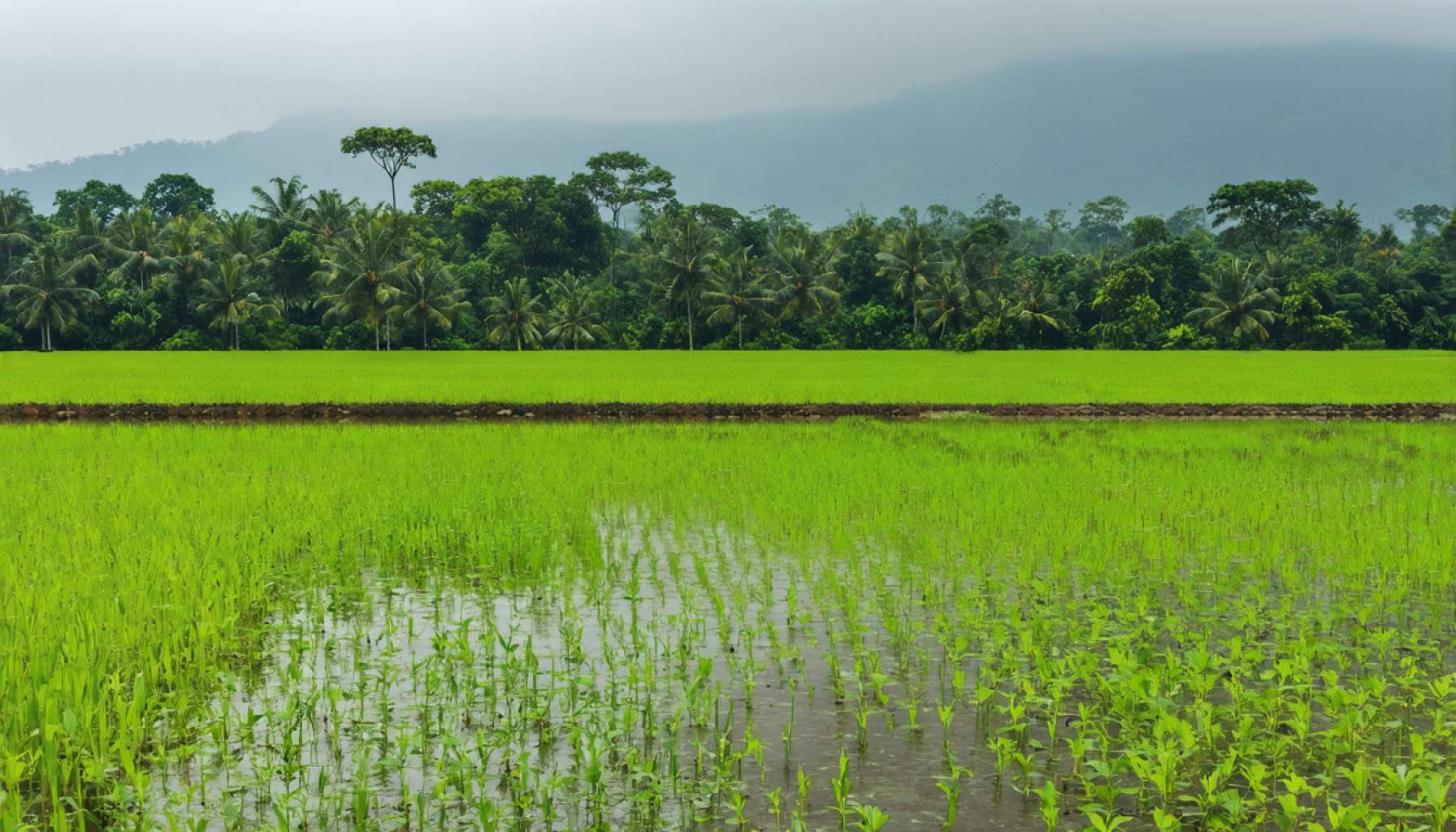- Indonesia joins the New Development Bank (NDB) under the BRICS coalition to advance its green industrial policy.
- The move aims to harness Indonesia’s renewable energy potential, reduce carbon emissions, and promote eco-friendly industries.
- NDB membership provides fresh financial support for Indonesia’s green endeavors, complementing traditional partners like the World Bank.
- Indonesia seeks to influence NDB governance to align the bank’s initiatives with its sustainability goals.
- Advocating for transparency and high environmental and social standards is crucial to ensuring successful and sustainable projects.
- Focus areas include green technology innovations in battery storage, carbon capture, and circular economy models.
- Indonesia’s NDB partnership offers a chance to redefine its role in sustainable finance and lead by example for developing nations.
Towering volcanoes and lush rainforests are the backdrop against which Indonesia is venturing into uncharted economic territory. The country’s recent decision to join the New Development Bank (NDB) under the BRICS coalition marks a bold stride towards accelerating its green industrial policy. As the echoes of industry and progress cut through Jakarta’s vibrant streets, the nation stands at a pivotal juncture—balancing its vast natural wealth with ambitious sustainability goals.
Indonesia’s embrace of NDB membership brings fresh financial lifeblood to its green ambitions. The sprawling archipelago, blessed with boundless renewable energy potential, faces the colossal task of greening its economy while lifting millions out of poverty. Indonesia’s path is clear: reduce carbon emissions, scale up renewable energies, and transition towards eco-friendly industries. Yet, the financial mechanisms needed for these changes remain as challenging as ever.
The NDB’s allure lies in its promise of capital flows directed toward green endeavors. An escape from the clutches of fossil fuels necessitates financial allies, and while traditional giants like the World Bank and Asian Development Bank remain steadfast partners, NDB provides a renewed financial vigor. Competitive loan structures might just be the key to unlocking large-scale projects in renewable energy and sustainable infrastructure, helping Indonesia carve a low-carbon future.
Indonesia’s strategic leap into the NDB fold signals an aspiration to weave itself into the global fabric of sustainable finance. It has the potential not just to benefit from NDB’s green funding strategies but to actively shape them. The structure of the NDB allows its member nations to rise above regional constraints, finding a voice in global dialogues on sustainable finance that can lead the way for developing nations across the globe.
No longer just a follower, Indonesia must amplify its voice, advocating for policies that place environmental stewardship and equitable financing front and center. Influencing NDB’s governance can align the institution’s priorities with Indonesia’s national ambitions, fostering innovation in clean technologies and ensuring the bank delivers optimal support for transformative projects.
Yet, this opportunity demands vigilance. Indonesia must champion transparency within the NDB, advocating for rigorous environmental and social standards. Such diligence ensures that the projects bolster sustainable development without overshadowing social and ecological considerations.
Advancing green technology innovations—like battery storage solutions, carbon capture, and circular economy models—should be at the forefront of Indonesia’s NDB agenda. In doing so, the nation can stretch the frontiers of what’s possible, driving adoption and implementation of cutting-edge solutions across its islands.
Indonesia’s partnership with the NDB is not merely transactional; it is transformational. By deftly navigating this relationship, the nation can not only harness NDB funding but redefine its role in sustainable finance, setting an example for similar economies worldwide. As Indonesia steps into this future, it embarks on an economic transformation—one that promises growth without environmental sacrifice.
Indonesia’s Strategic Leap into Global Green Finance with NDB
Unlocking the Potential of Indonesia’s Green Ambitions
Indonesia’s recent decision to join the New Development Bank (NDB) under the BRICS coalition marks a significant milestone in the nation’s push towards green industrial policies. This move aligns with Indonesia’s commitment to reducing carbon emissions, scaling up renewable energy, and transitioning to eco-friendly industries. As Indonesia strives to balance its natural wealth with ambitious sustainability goals, its partnership with NDB offers new opportunities and challenges.
Real-World Use Cases and Industry Trends
1. Renewable Energy Projects: Indonesia’s vast archipelago is rich in renewable energy resources, including solar, wind, and geothermal. With NDB’s financial backing, Indonesia can invest in large-scale renewable energy projects, making significant strides towards energy security and reducing dependency on fossil fuels.
2. Sustainable Infrastructure: Access to NDB funding can accelerate the development of sustainable infrastructure, such as green buildings, eco-friendly transportation systems, and smart cities, which are essential for sustainable urbanization.
3. Innovative Technology Implementation: By focusing on advancements in green technologies, Indonesia has the potential to pioneer initiatives in battery storage solutions, carbon capture, and circular economy models, setting a global standard for sustainable practices.
Pressing Questions Readers May Have
1. Why join the NDB?
Joining the NDB allows Indonesia to access competitive loan structures directed towards green projects. This is crucial for supporting its green industrial transition.
2. What are the benefits of NDB membership?
Apart from funding, NDB membership gives Indonesia a platform to influence global sustainable finance dialogues, allowing it to shape policies and strategies that align with national goals.
3. What are the risks and challenges?
Ensuring transparency within NDB operations and advocating for rigorous environmental and social standards are critical to preventing adverse impacts of green projects.
Market Forecasts and Industry Trends
1. Increased Renewable Energy Investments: As part of its NDB membership, Indonesia is expected to see a significant rise in investments in renewable energy. This aligns with a global trend that predicts renewable energy to dominate the energy market by 2050.
2. Shifts in Global Capital Flows: Participating in global sustainable finance mechanisms like NDB signals a shift in capital flows as countries prioritize funding for low-carbon technologies and solutions.
Controversies and Limitations
While NDB membership offers potential benefits, there are challenges, including ensuring equity in project selection and managing the geopolitical influences within BRICS. Transparency and accountability will be essential in maximizing the positive impacts of the collaboration.
Recommendations and Quick Tips
– Advocate for Green Innovation: Indonesia should leverage its position within the NDB to prioritize funding for innovative green technologies and projects that can have transformative impacts.
– Boost Transparency: Championing transparency and accountability within the NDB can help ensure that green financing truly leads to sustainable development.
– Strengthen Regional Cooperation: Collaborating with other BRICS nations can facilitate knowledge exchange and foster a cooperative approach towards common sustainable development goals.
In stepping up its role in the global green finance landscape, Indonesia sets a powerful precedent for other developing nations. Its journey with the NDB is not just about financial transactions; it is about transforming its economy and demonstrating leadership in sustainable development.
For more insights into sustainable finance and global development strategies, visit the New Development Bank.














